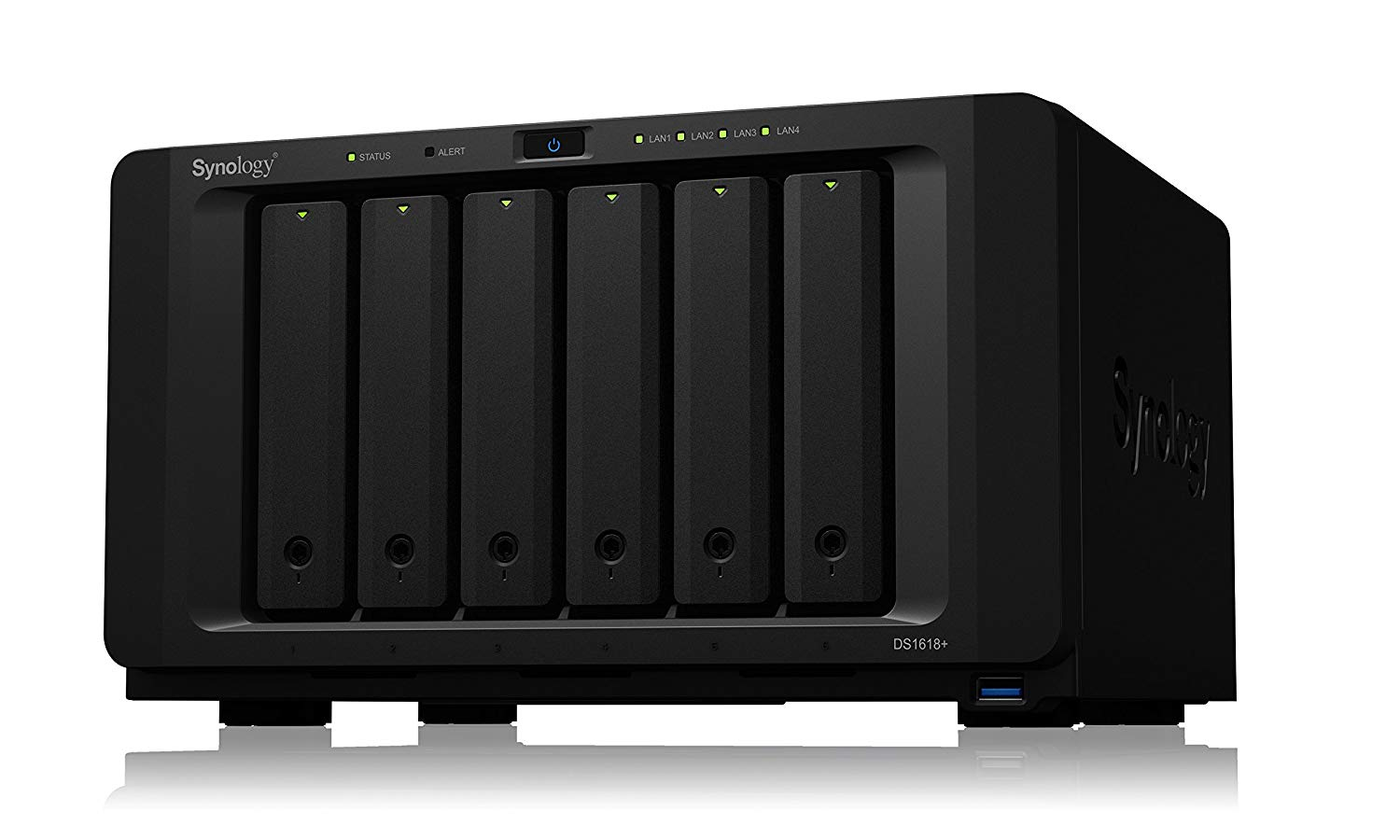DoubleTap
2[H]4U
- Joined
- Dec 16, 2010
- Messages
- 2,990
At a minimum, I'd like to get 8-12TB of mirrored or redundant storage for family photos, system backups and whatnot.
Not doing plex, storing lots of movies or doing a lot of downloading
I'd like to spend under a grand, but I could do 1200 or so if I need to.
I don't want to build my own - my house has enough tech that I have to maintain including 4 gaming PCs.
Physical size, heat output and noise are factors.
Right now, I'm only considering Synology but if someone wants to make a case for QNAP or something, I'm open minded.
Options:
1. DS718+ (Dual bay, Intel, can add 5 disk dumb chassis) $400 + two 8-12TB NAS drives - so like $1000ish
2. DS1618+ (six bay, NVME cache, slot to add 10GBE) $735 + with six bays, I can start out with small drives and have tons of room to expand and later add 10GBE if I want
This feels like the best options because I'm putting the money into the infrastructure and I could literally run 3x 4TB drives for a long time and be fine.
3. DS620slim 6 bay 2.5" NAS (six X 5TB 2.5" drives is max) $465 + 4TB or 5TB Seagate 2.5" drives - none of which are "NAS" drives, but all of which can often be found for $89-99 if shucked from USB drives. I could make a 20TB array with 2 redundant drives and this thing is really small - again, I could start with 2-3 5TB drives and could even add SSDs later, but it's limited to 1GBE and not expandable. Probably $1100 fully populated.
What if I got a big chassis and just used regular drives in a redundant array - is that really "unsafe" compared to buying the WD Red style drives?
How crazy is it to use 2.5" drives? It seems to me that having a path to 10GBE would make the 1618+ viable for general storage on all the PCs in the house, but I don't know.
Finally, the DS718+ with dual WD Red Pro drives seems like the most secure and sensible move, but it would also max me out and my only upgrade would be replacing the drives or buying the 5 bay add one. Also, I don't like the idea of using two big, $300-400 drives and having to replace one if one craps out. Multiple smaller drives seems like a much more manageable system.
Not doing plex, storing lots of movies or doing a lot of downloading
I'd like to spend under a grand, but I could do 1200 or so if I need to.
I don't want to build my own - my house has enough tech that I have to maintain including 4 gaming PCs.
Physical size, heat output and noise are factors.
Right now, I'm only considering Synology but if someone wants to make a case for QNAP or something, I'm open minded.
Options:
1. DS718+ (Dual bay, Intel, can add 5 disk dumb chassis) $400 + two 8-12TB NAS drives - so like $1000ish
2. DS1618+ (six bay, NVME cache, slot to add 10GBE) $735 + with six bays, I can start out with small drives and have tons of room to expand and later add 10GBE if I want
This feels like the best options because I'm putting the money into the infrastructure and I could literally run 3x 4TB drives for a long time and be fine.
3. DS620slim 6 bay 2.5" NAS (six X 5TB 2.5" drives is max) $465 + 4TB or 5TB Seagate 2.5" drives - none of which are "NAS" drives, but all of which can often be found for $89-99 if shucked from USB drives. I could make a 20TB array with 2 redundant drives and this thing is really small - again, I could start with 2-3 5TB drives and could even add SSDs later, but it's limited to 1GBE and not expandable. Probably $1100 fully populated.
What if I got a big chassis and just used regular drives in a redundant array - is that really "unsafe" compared to buying the WD Red style drives?
How crazy is it to use 2.5" drives? It seems to me that having a path to 10GBE would make the 1618+ viable for general storage on all the PCs in the house, but I don't know.
Finally, the DS718+ with dual WD Red Pro drives seems like the most secure and sensible move, but it would also max me out and my only upgrade would be replacing the drives or buying the 5 bay add one. Also, I don't like the idea of using two big, $300-400 drives and having to replace one if one craps out. Multiple smaller drives seems like a much more manageable system.
![[H]ard|Forum](/styles/hardforum/xenforo/logo_dark.png)
